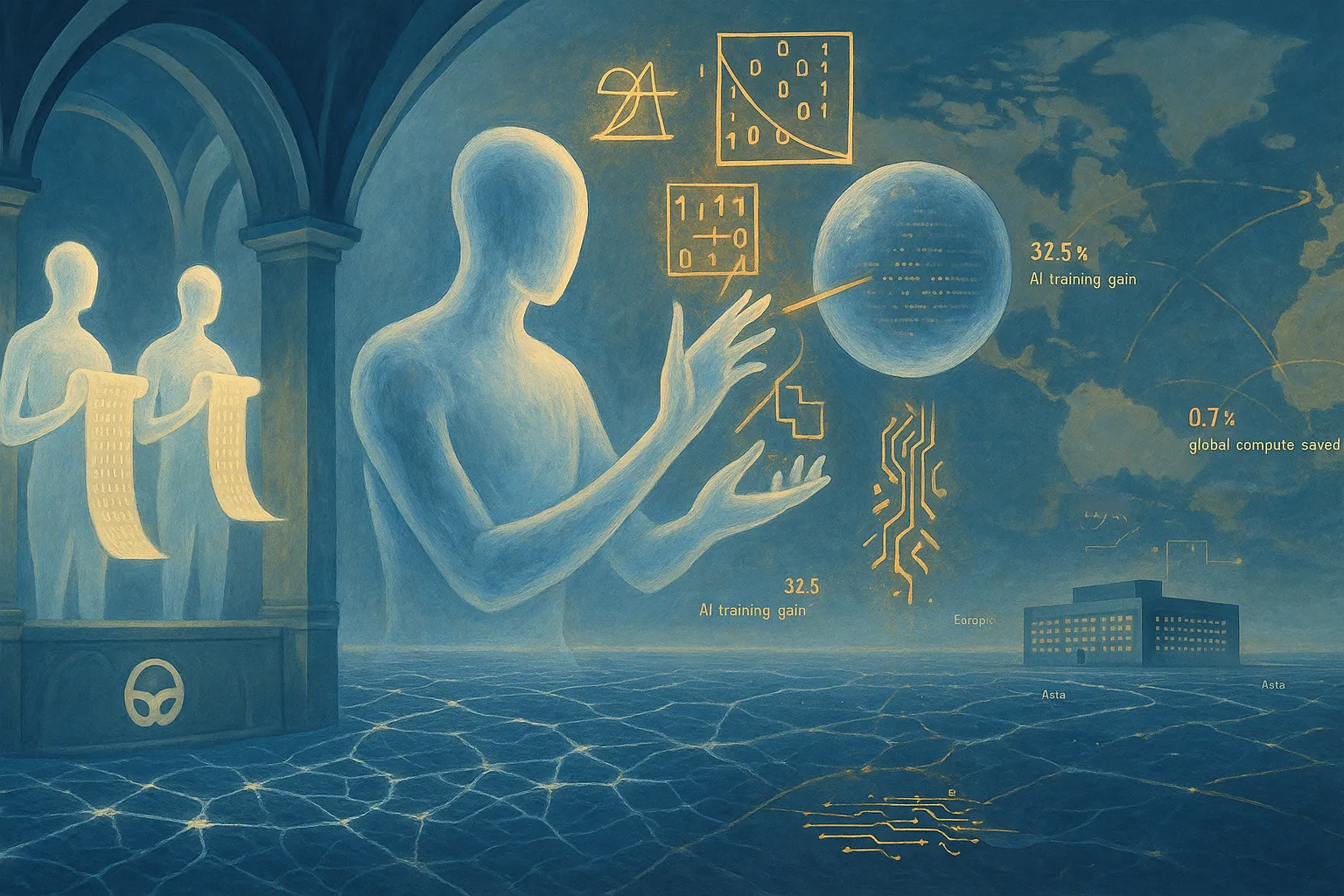Google's DeepMind has created an AI system that writes better algorithms than human experts - and it's already saving Google money on its electric bills.
AlphaEvolve, announced this Wednesday, combines two AI models to create and improve computer code. The system has found faster ways to perform calculations that have stumped mathematicians since 1969. It's also trimming Google's massive computing costs.
How It Works
The system works like a pair of programmers. One throws out quick ideas while the other carefully refines them. It uses Google's Gemini Flash model for rapid suggestions and Gemini Pro for detailed improvements. An automated checker then tests if the code actually works - something many human programmers might appreciate during late-night debugging sessions.
Unlike previous AI coding tools, AlphaEvolve doesn't just write single functions. It evolves entire programs through repeated testing and improvement. Think less "helpful assistant" and more "tireless researcher who never needs coffee breaks."
The results are impressive. AlphaEvolve found a way to save 0.7% of Google's worldwide computing power - a small percentage that adds up to significant savings across Google's massive data center network. It also sped up crucial calculations in AI training by 23%, cutting both costs and energy use.
Expert Views
Mario Krenn, who leads the Artificial Scientist Lab at Germany's Max Planck Institute, called the breakthrough "spectacular." He highlighted AlphaEvolve as the first successful demonstration of general-purpose AI making genuine scientific discoveries.
Room for Skepticism
But not everyone is ready to welcome our new coding overlords. Huan Sun, an AI researcher at Ohio State University, suggests taking the results "with a grain of salt" until independent researchers can verify them. Simon Frieder from Oxford University points out that AlphaEvolve only works on problems that can be clearly coded and tested - it won't be writing poetry or designing user interfaces anytime soon.
The timing is interesting. Just as Google announced AlphaEvolve, OpenAI added its own specialized coding model, GPT-4.1, to ChatGPT. Both companies are racing to dominate AI-powered coding, with OpenAI reportedly considering a $3 billion acquisition of coding tool Windsurf.
Google's approach differs from OpenAI's. While OpenAI focuses on making coding tools widely available through ChatGPT, Google is targeting specific, measurable improvements in its own systems first. AlphaEvolve has already helped design Google's next generation of AI chips and improved how the company manages its vast computing resources.
Mathematical Breakthroughs
The system has also tackled pure mathematics. It found a better solution to the "kissing number problem" - a geometric puzzle that has intrigued mathematicians for over 300 years. The problem asks how many spheres can touch a central sphere without overlapping. AlphaEvolve discovered a new configuration with 593 spheres in 11 dimensions, setting a new record.
Google plans to offer AlphaEvolve to academic researchers through an Early Access Program. However, the system requires too much computing power for free public access. This limitation highlights a growing challenge in AI research - the most powerful tools often remain in the hands of large tech companies with massive computing resources.
Why this matters:
- We're entering an era where AI doesn't just help programmers - it actively improves upon human-written code
- The real innovation isn't in writing code, but in automatically testing and improving it. AlphaEvolve's success suggests future AI systems might spend less time generating ideas and more time rigorously testing them
Read on, my dear:











